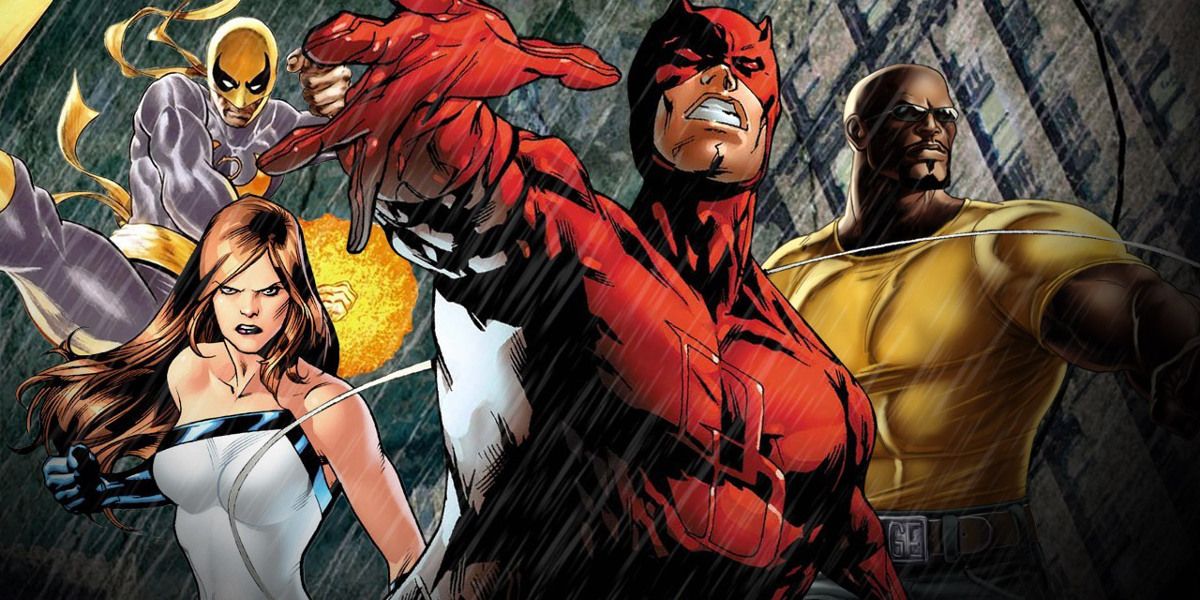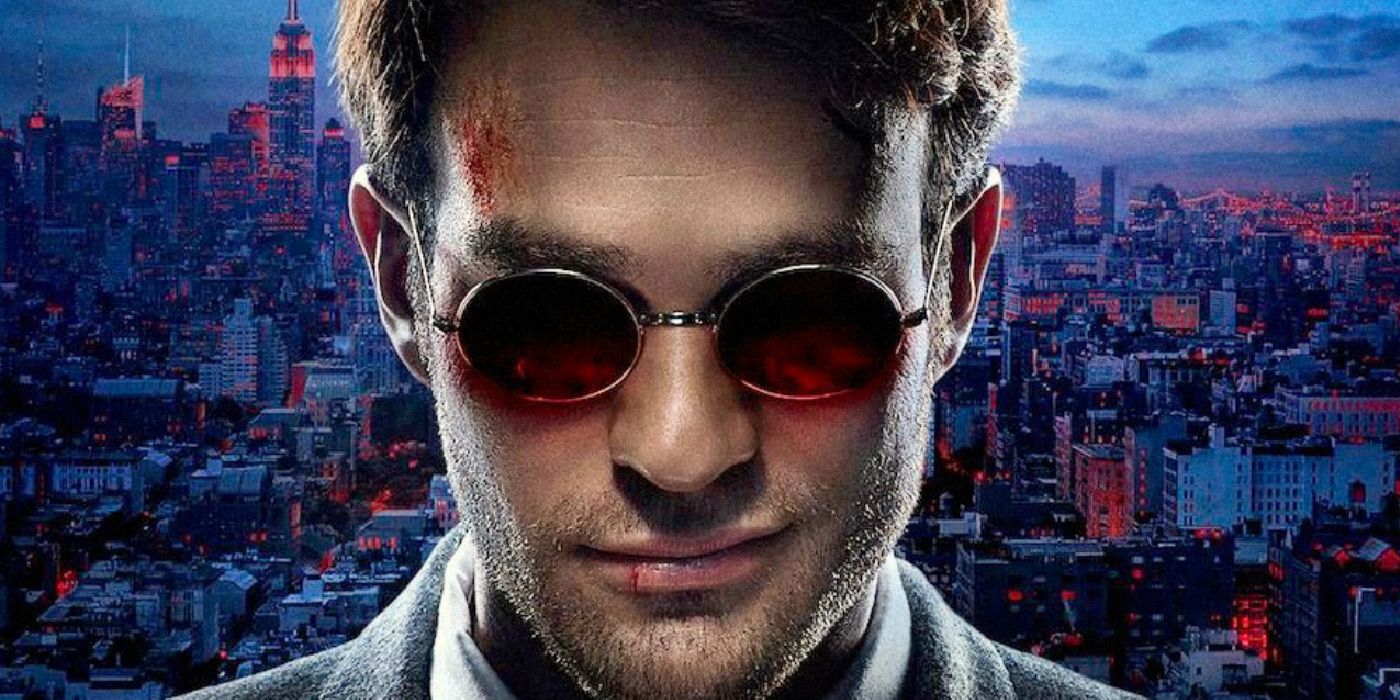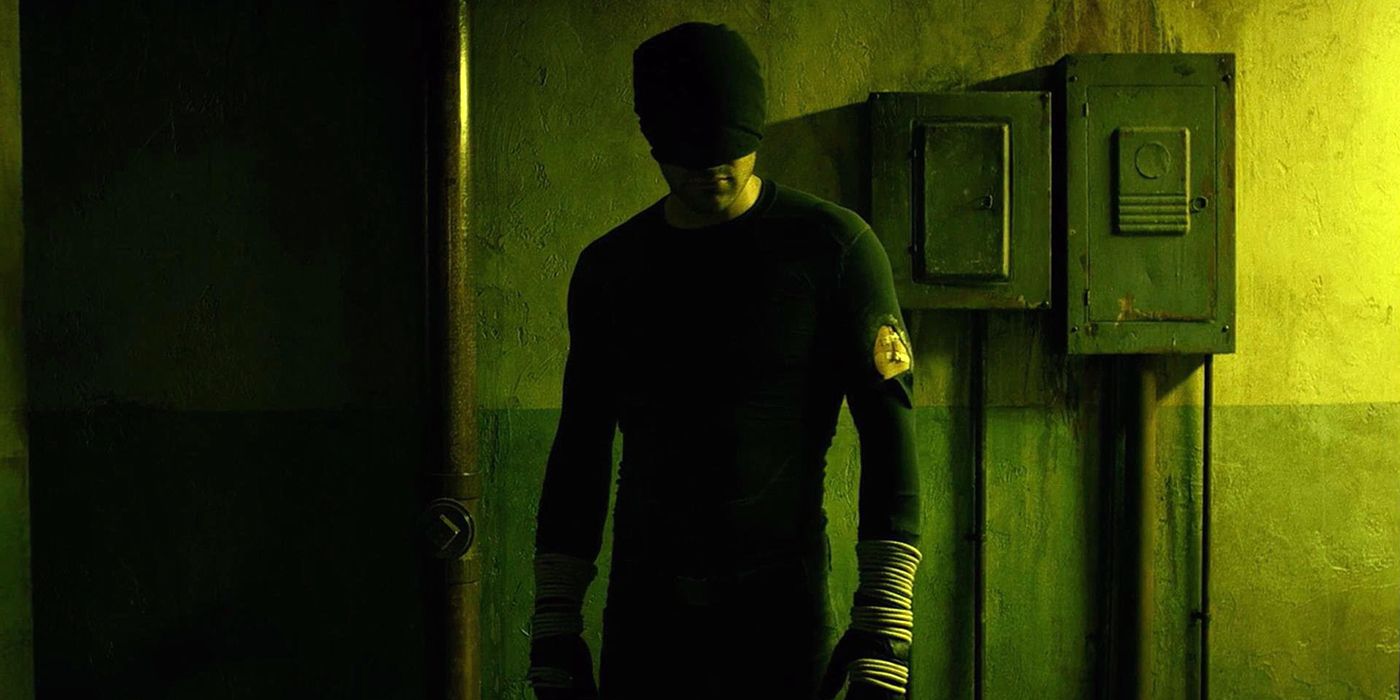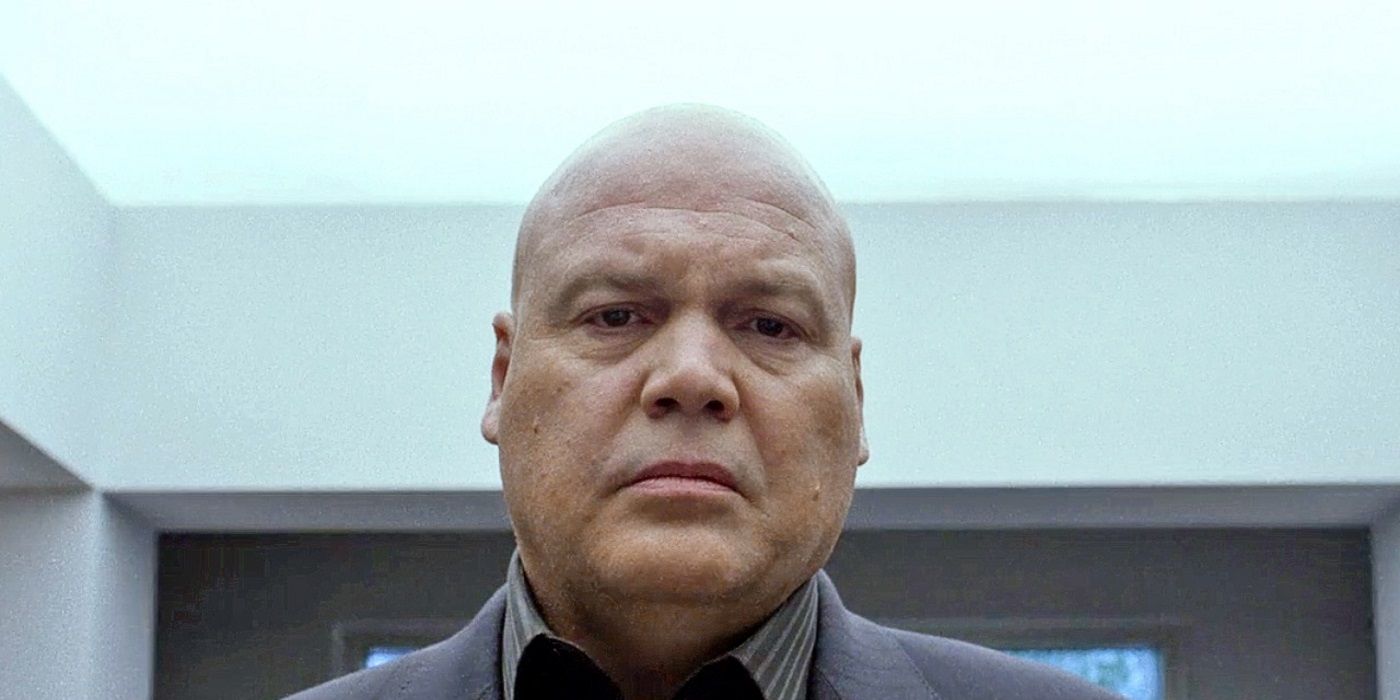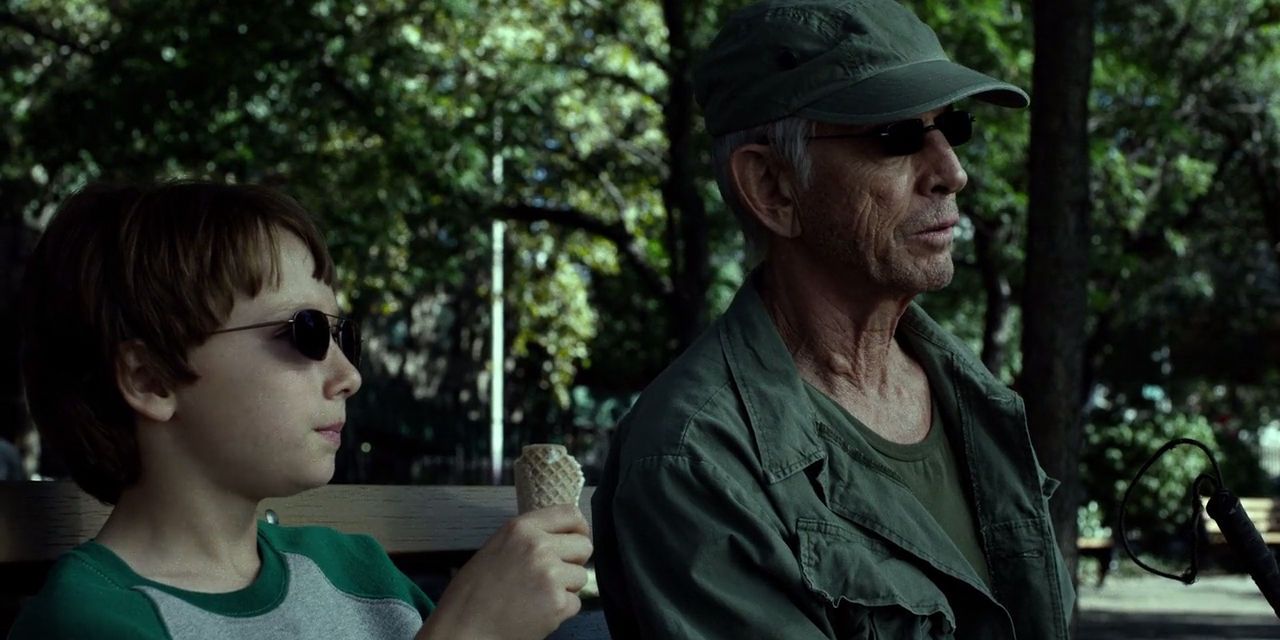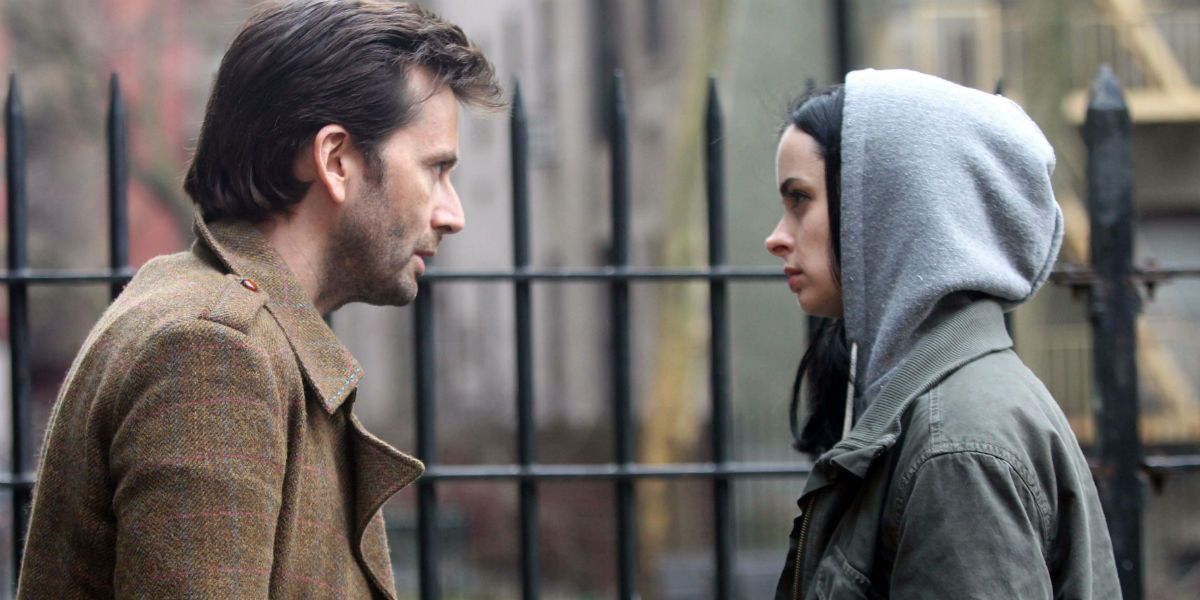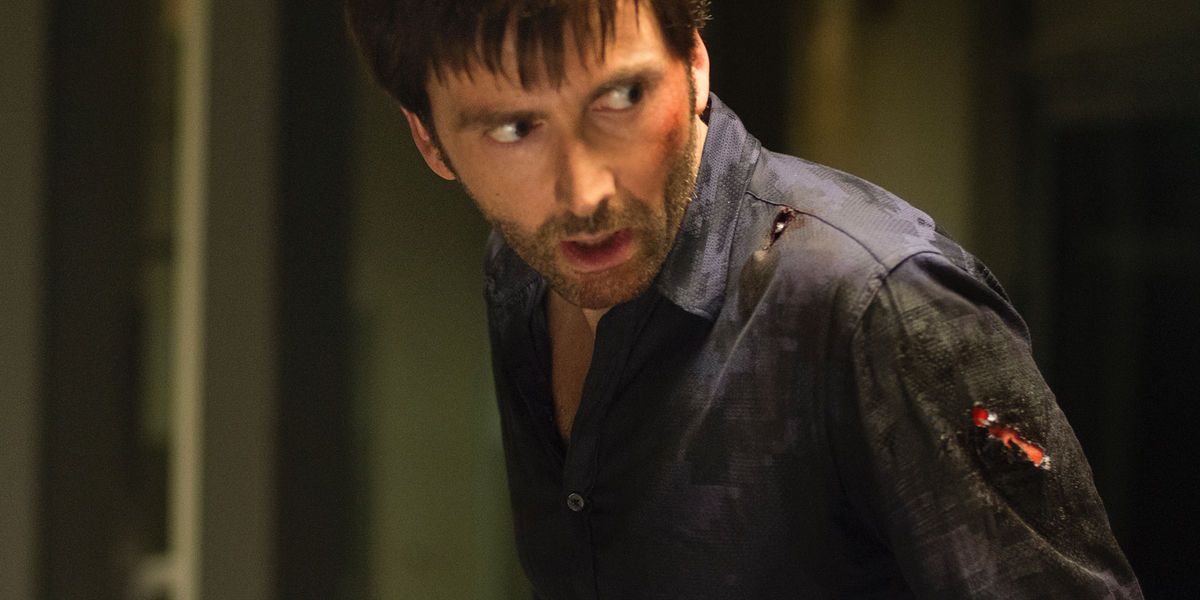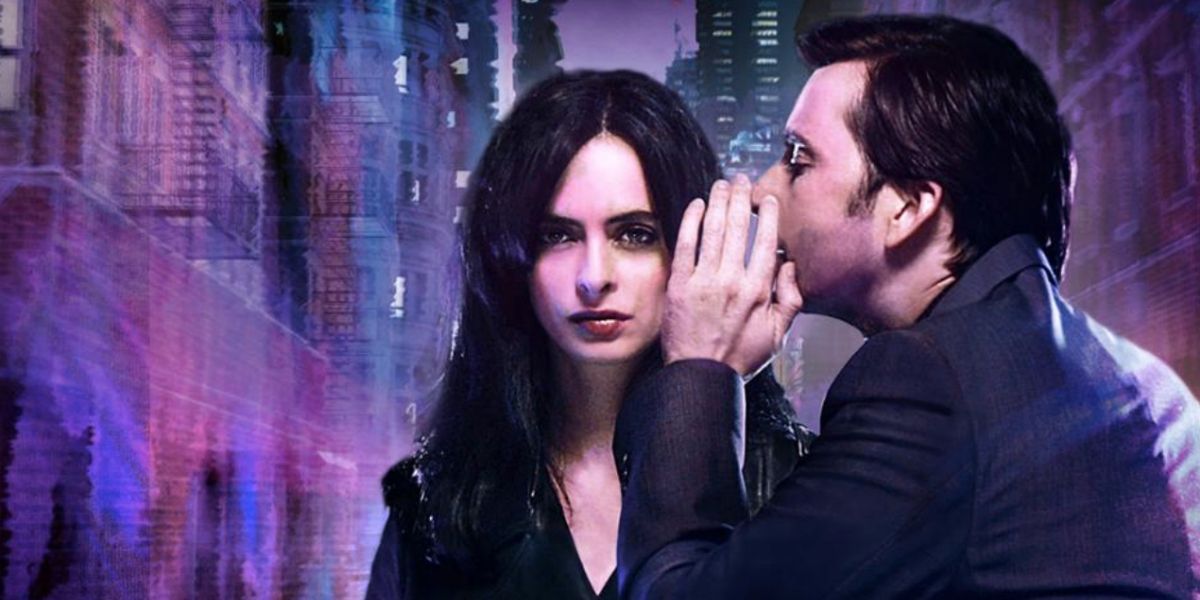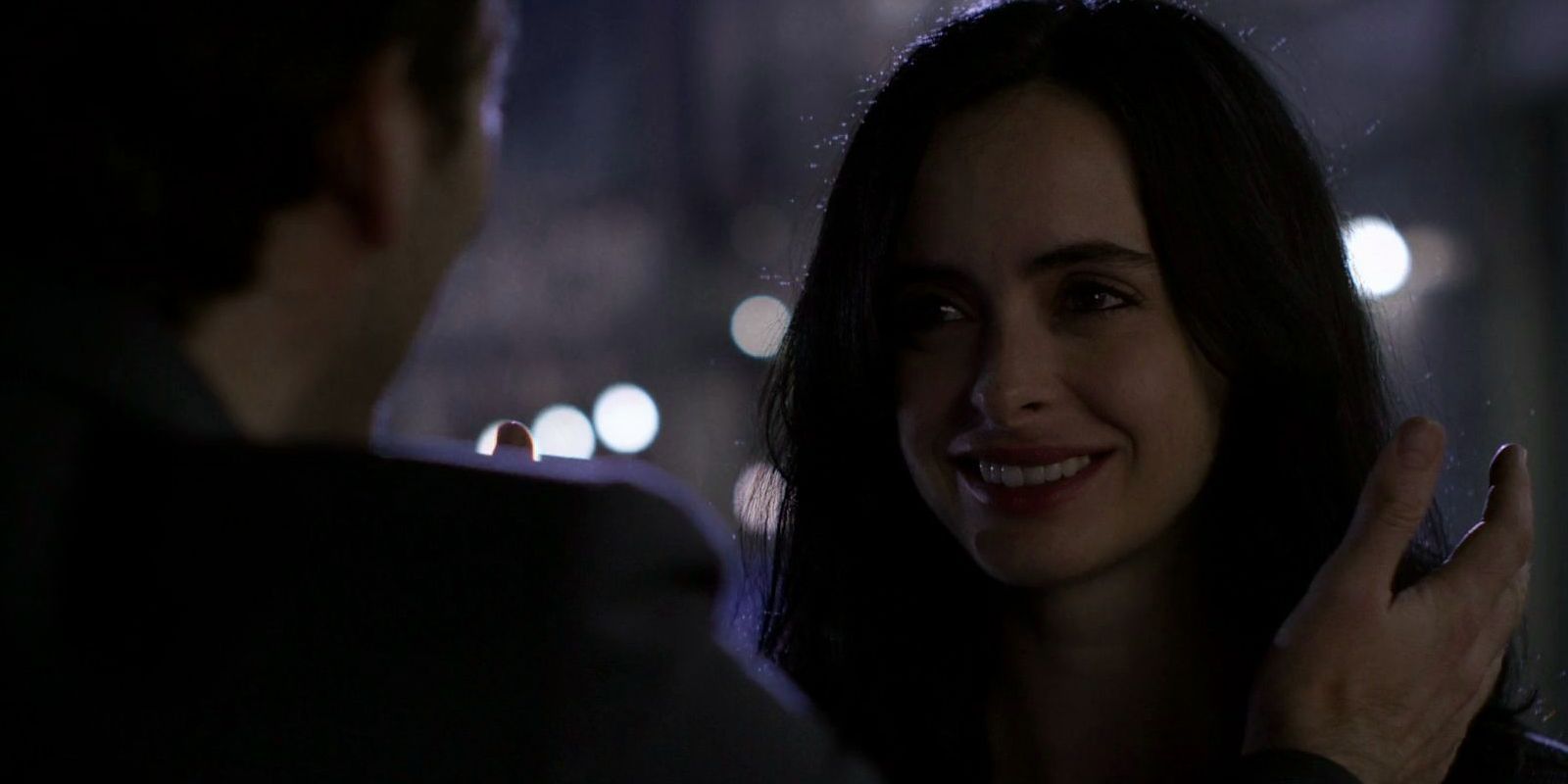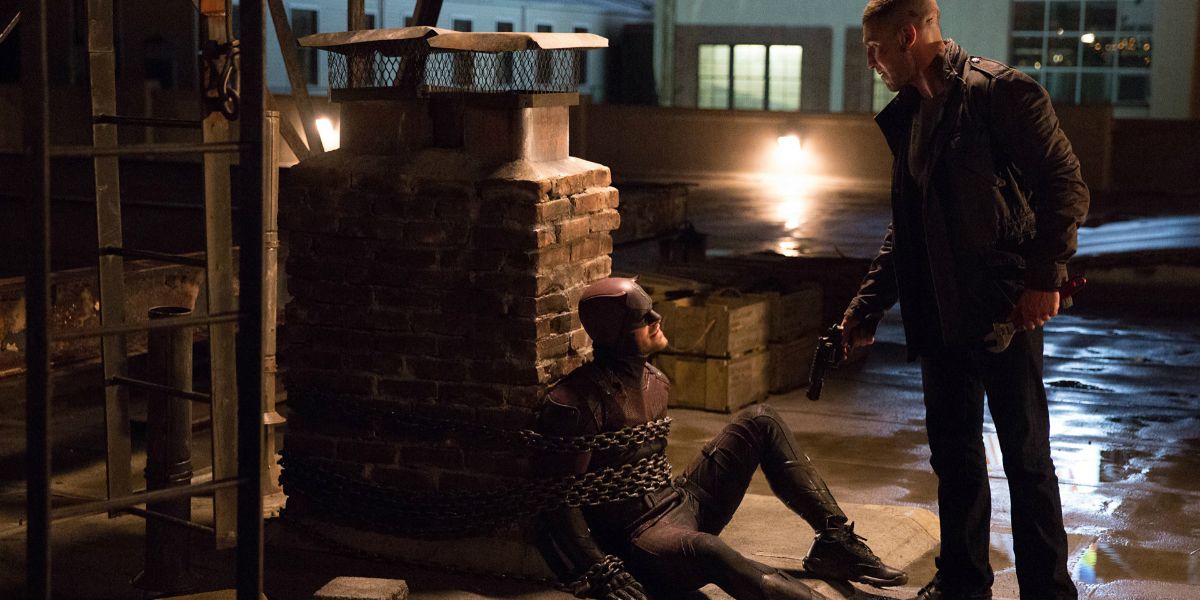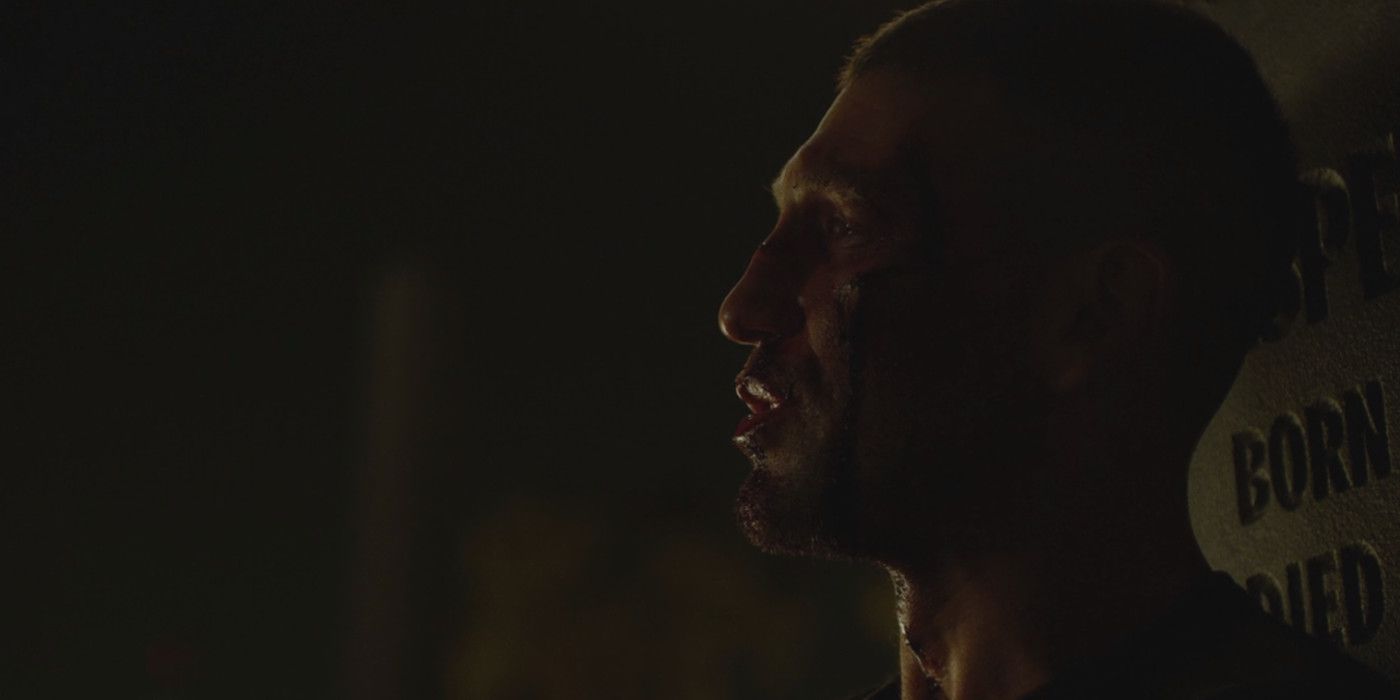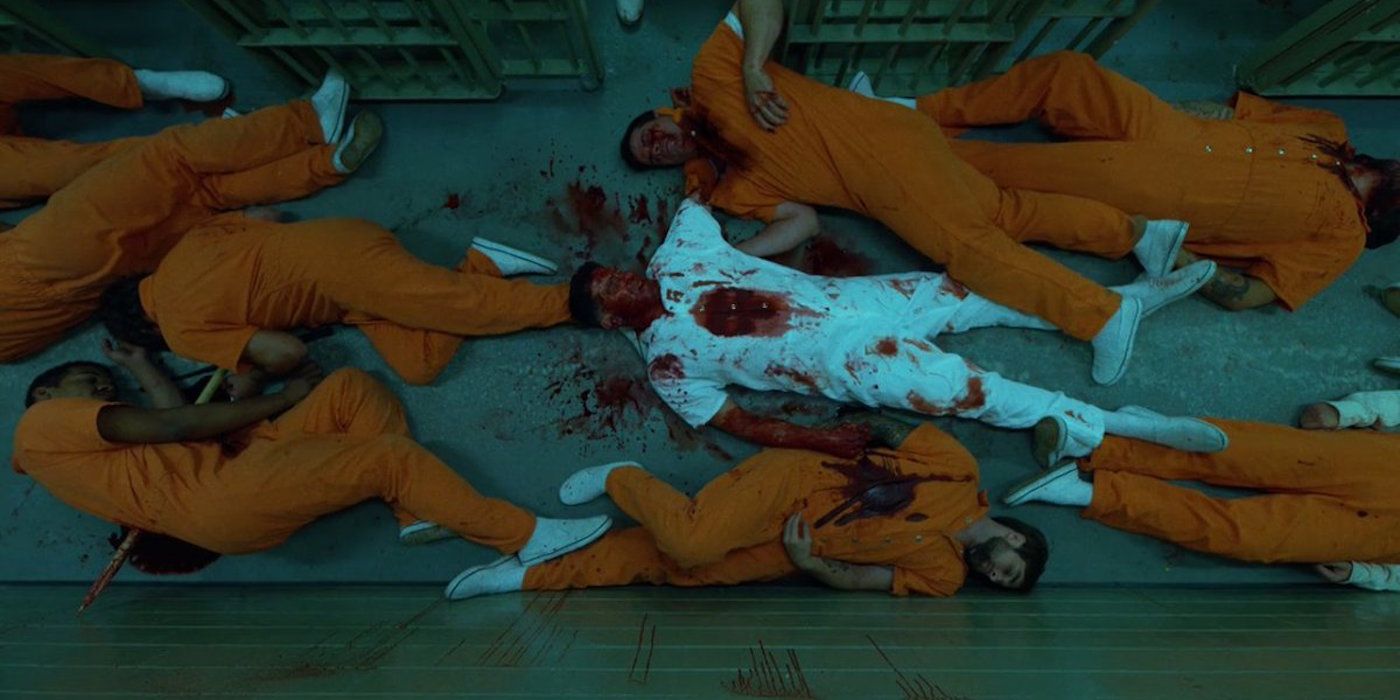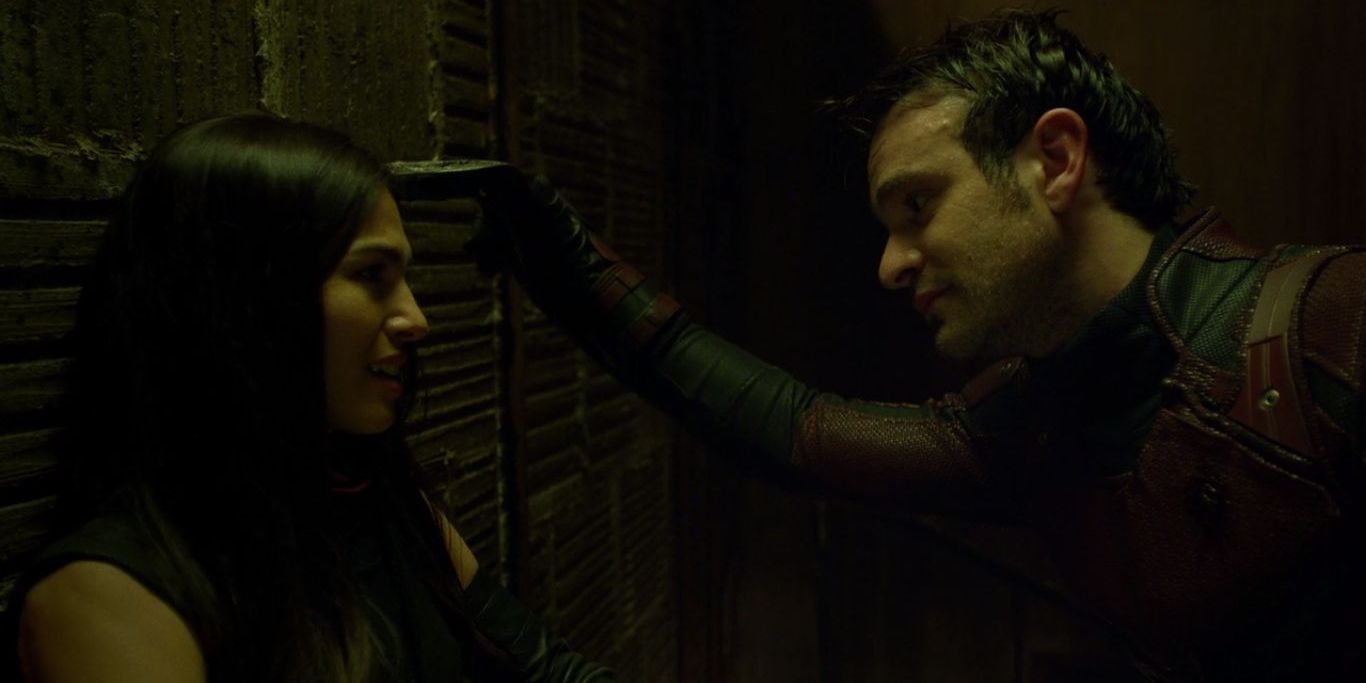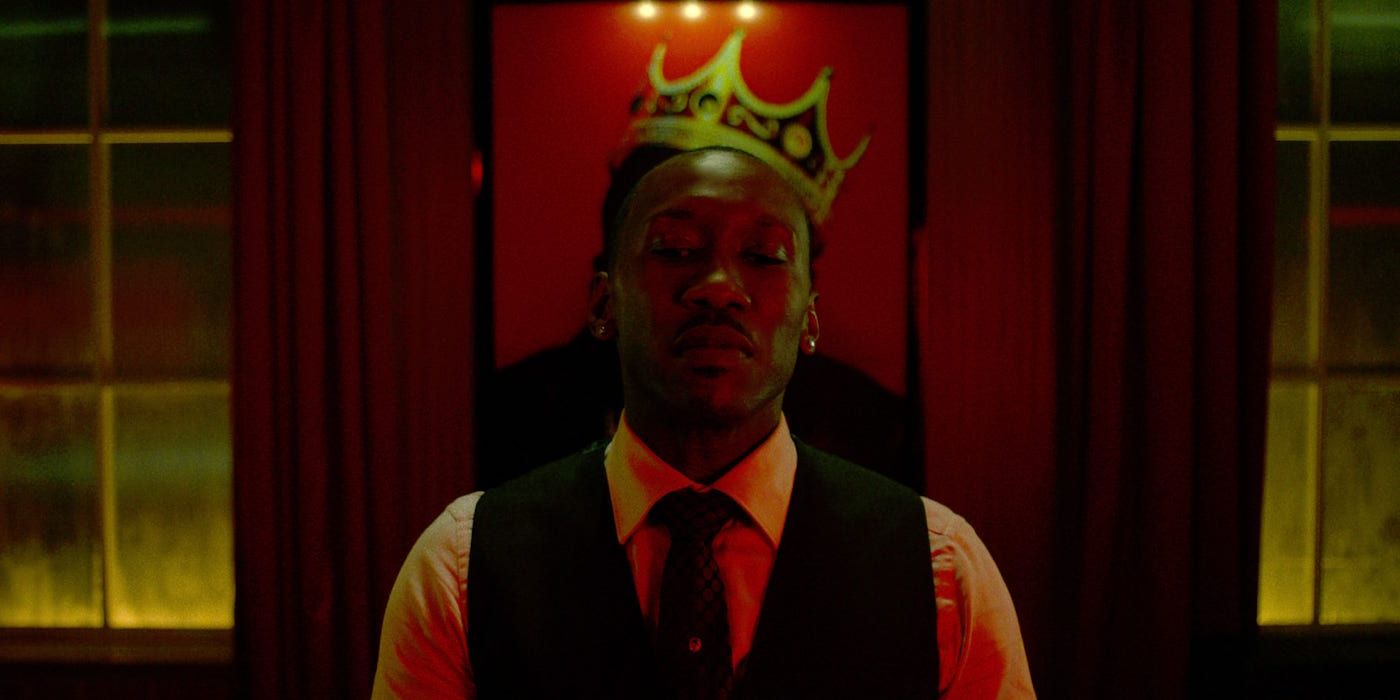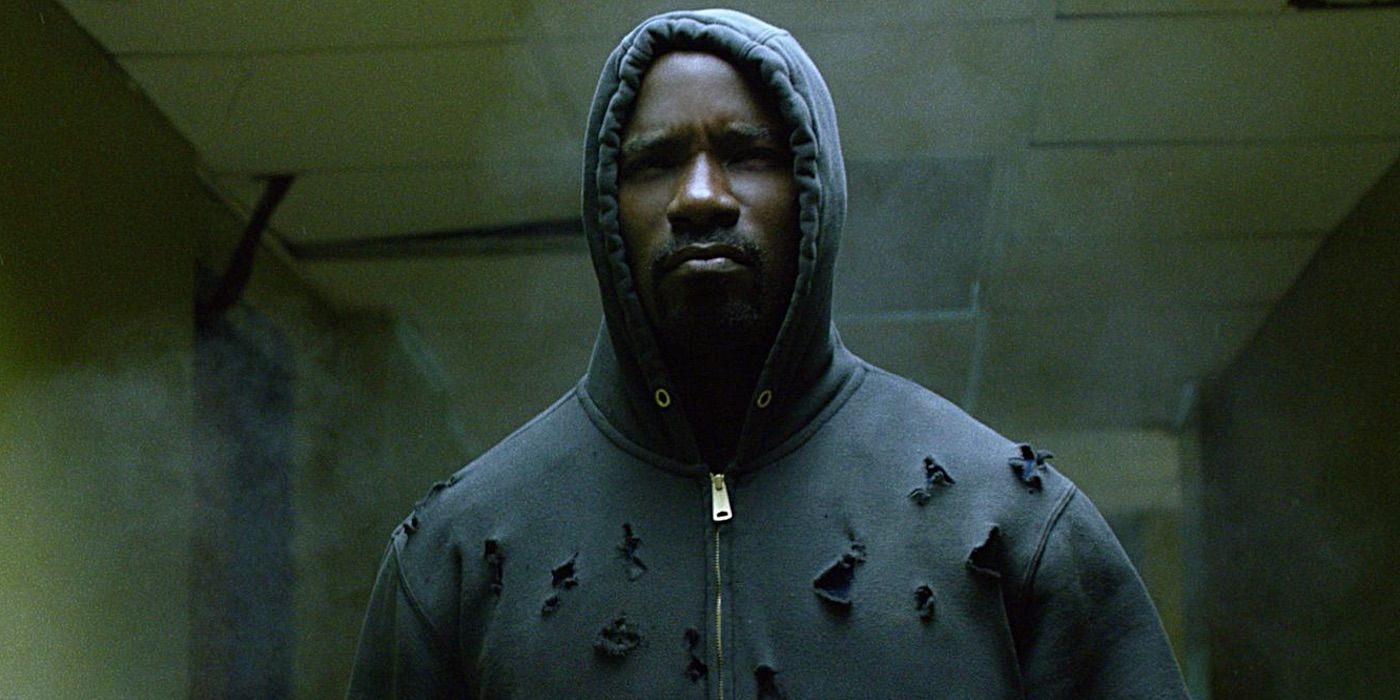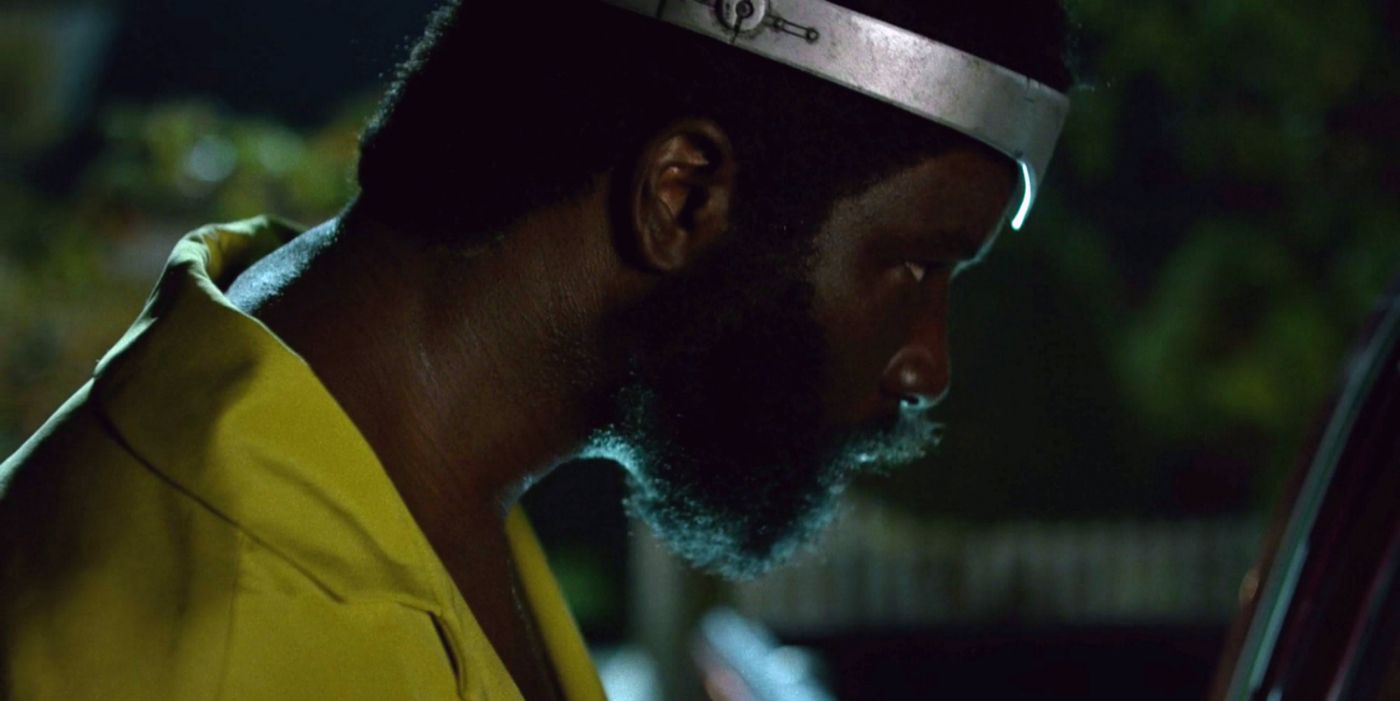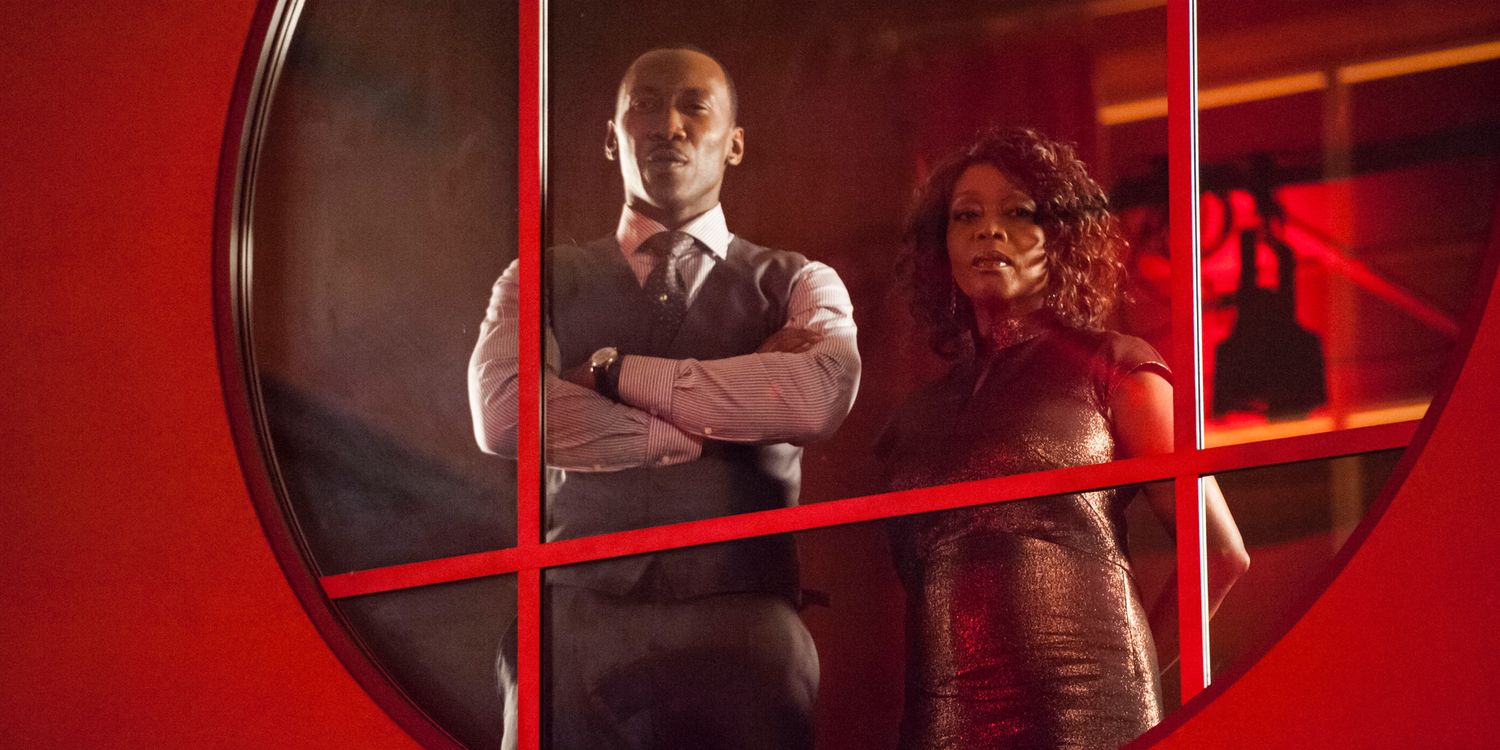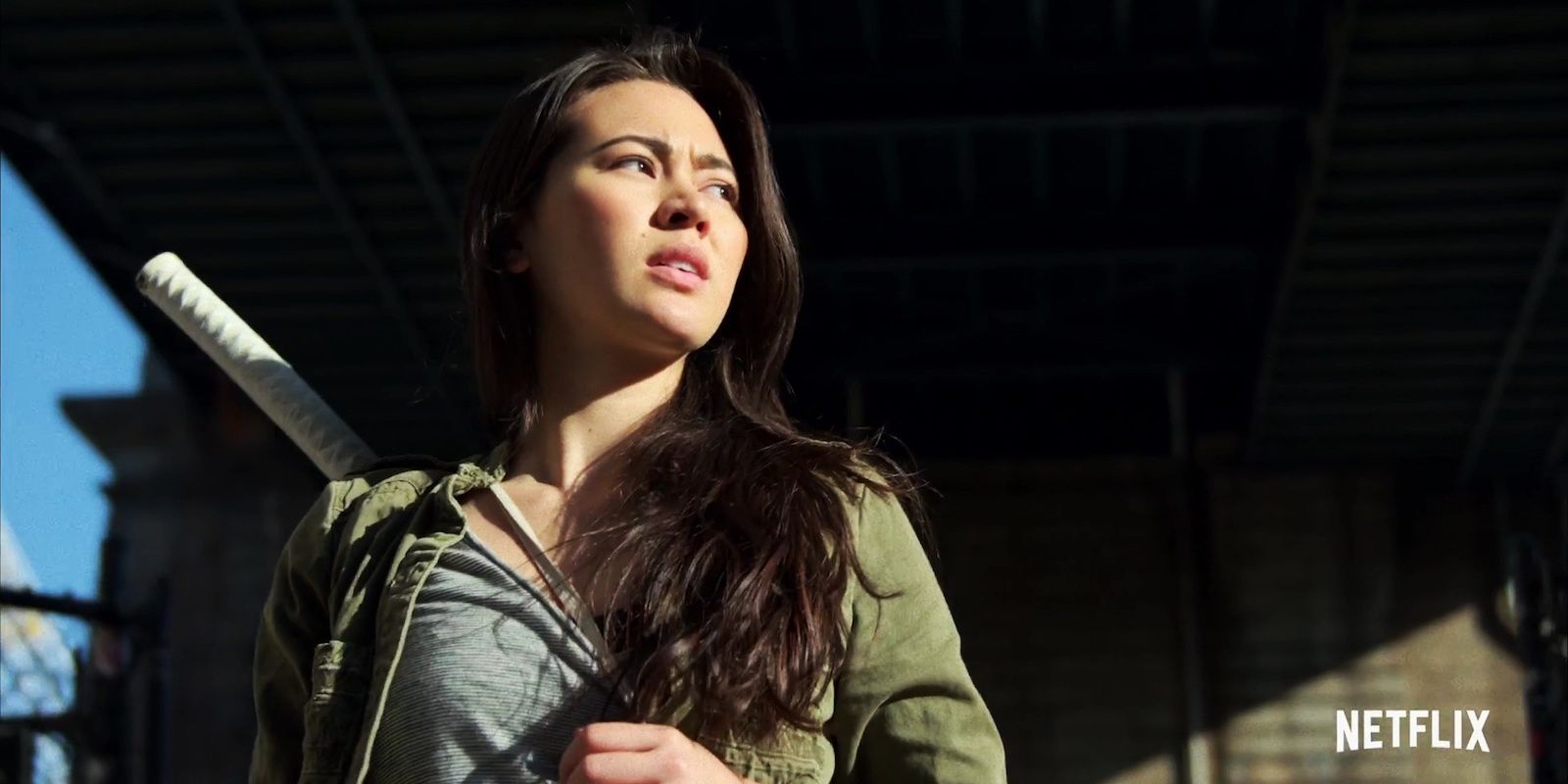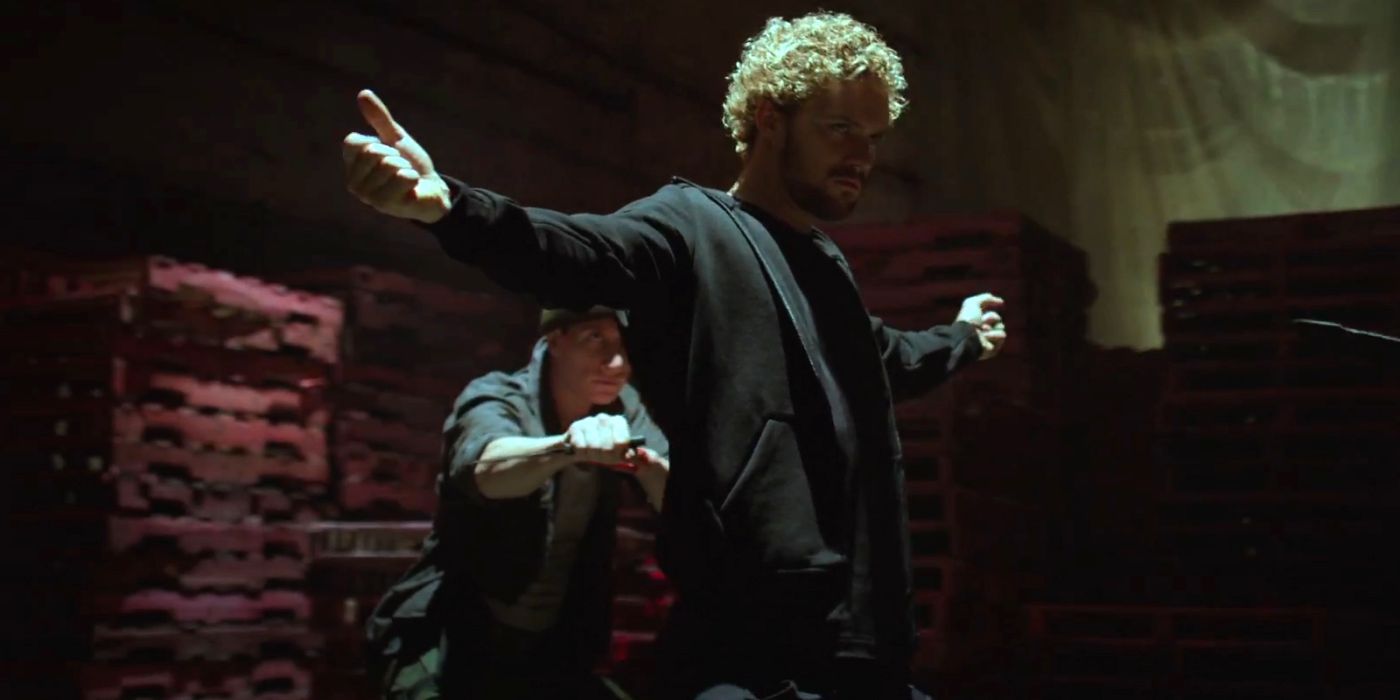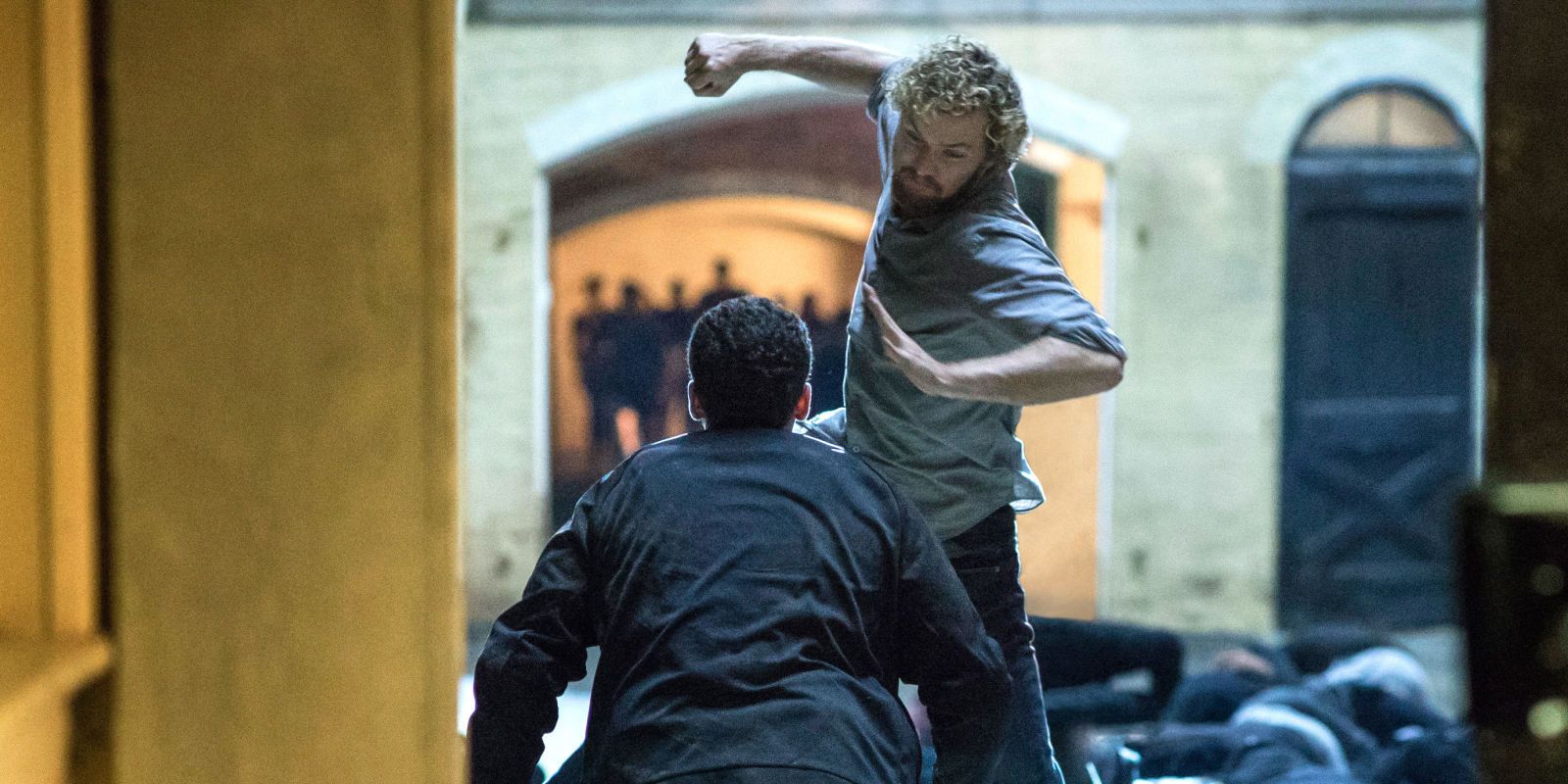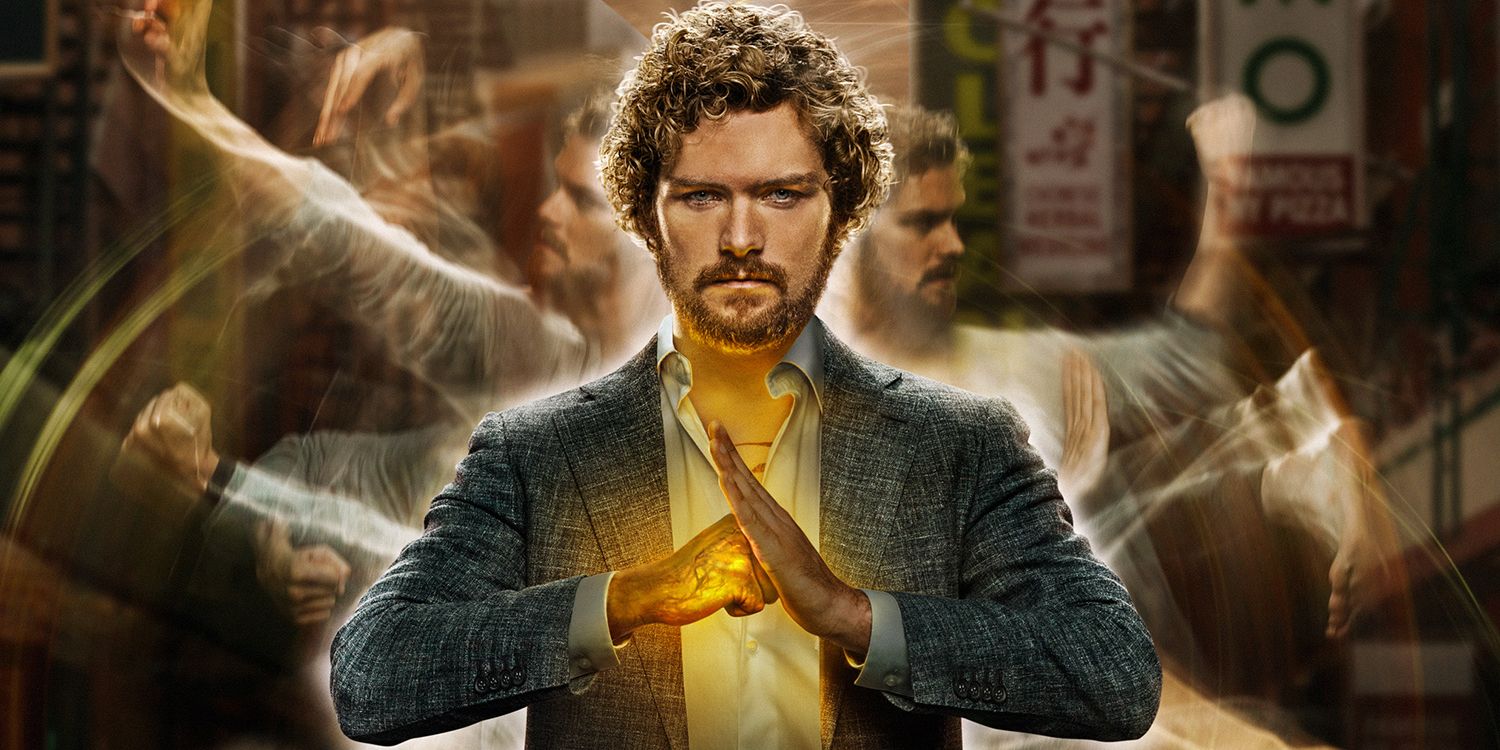If you've only seen the movies, you haven't seen all of the Marvel Cinematic Universe.
Marvel's Netflix shows, though not nearly as epic in scale as blockbuster films like Captain America: Civil War and Dr. Strange, expand and deepen the MCU in many compelling ways.
Fans have devoured each batch of new episodes as they have been released, and they're always hungry for more. With two seasons of Daredevil, one each of Jessica Jones, Luke Cage and Iron Fist, The Punisher on the way and The Defenders coming soon, the Netflix corner of the Marvel universe just keeps getting bigger.
Through five seasons and 65 episodes in total, the shows have delivered some of the best superhero stories (and action) you'll find anywhere. To help you relive some of them, we've chosen four of the best moments from each of the five seasons released on Netflix so far: here they are, in order of release.
20. "Because I enjoy it." - Daredevil (Episode 2)
Stan Lee created Daredevil in 1964, but it was Frank Miller's work with the character in the 1980s that has come to define him as one of the darker characters in the Marvel universe. Netflix's Daredevil series steeps itself in that darkness and in the danger of the Hell's Kitchen neighborhood Matt Murdock calls home. It's not the kind of place in which just anybody can survive.
As a devout Catholic lawyer who beats criminals to a pulp by night, Murdock is a walking contradiction. He's a good man with good intentions, and he genuinely wants to make his city a better and safer place, but he's not a squeaky clean hero like Steve Rogers. He enjoys inflicting well deserved pain on the criminals he battles.
He says as much in the episode "Cut Man" when he and Claire Temple tie up a gangster who has come looking for them. While Matt tortures and interrogates his captive, he tells the criminal that he enjoys what he does. It's a scare tactic, certainly, but not a lie, and it differentiates Daredevil from the MCU's other heroes.
19. Hallway fight - Daredevil (Episode 2)
What is there to say about the incredible "hallway fight" sequence in "Cut Man" that hasn't already been said? It's one of the best action scenes we've seen to date in the entire MCU, let alone on the Netflix shows.
It's a remarkable feat of stunt work and cinematography: three minutes of brutal, non-stop violence as Daredevil fights his way through a gang of Russian thugs, and it's all done in one continuous shot. Conceptually, the fight is laid out perfectly, smartly utilizing quick off-camera sequences within different apartments to allow the performers to rest and situate themselves for the next phase of the battle. Thematically it's even more impressive, showing the lengths to which Murdock will go to save the young boy the Russians have kidnapped.
Also notable is the sheer amount of punishment Murdock takes. He and his adversaries grunt and groan, stumble, fall, and stop to catch their breath, all of which serves to heighten the realism of the sequence. Daredevil may have heightened senses, but he's no super soldier. He feels every punch he takes.
18. "We're nothing alike." - Daredevil (Episode 6)
Kingpin, like Daredevil, benefited from a comprehensive reimagining by Frank Miller in the 1980s. Wilson Fisk was originally conceived as a tubby and ineffectual Spider-Man villain, but when Miller needed a suitable nemesis for the man without fear, he redefined the character as a true criminal mastermind. Vincent D'Onofrio was an ideal choice to embody this more ruthless and intimidating Kingpin.
The series takes its time in bringing its hero and villain together, so when they finally speak to each other (albeit over police radio) in the sixth episode, "Condemned", it's a big moment. Wisely, it's also relatively understated. Fisk and Murdock don't yell and scream at each other: they have a relatively calm debate about their respective morals and intentions for Hell's Kitchen. Like all the great villains, Fisk sees himself as the hero of the story, and he'll go to any lengths to achieve his version of "saving the city". He sees the same commitment in Daredevil, and commends him for it, even as he arranges the vigilante's downfall.
17. Training with Stick - Daredevil (Episode 7)
The seventh episode of Daredevil's first season, "Stick", focuses on the blind old warrior and his complicated relationship with Matt Murdock. Scott Glenn is perfect in the role: crusty, uncompromising and derisive of Matt while almost imperceptibly expressing the deeply buried pride and affection he feels for him.
The flashback sequences of Stick meeting and training the young Matt are great, as we see the future vigilante begin to understand the extent of his heightened senses. It's intriguing to see Matt and Stick use just their ears and noses to determine that a nearby man is dying, for example. Their fight training is even better.
The best part of the story is when Matt gives Stick a present (a bracelet made from an ice cream wrapper), and the old man promptly rejects and abandons him. It's heartbreaking to see Matt lose another mentor (and potential father figure), and furthers the notion that Stick is heartless. That makes the later, present day reveal that Stick had kept the weathered old gift all the more effective.
16. Home life - Jessica Jones (Episode 8)
At first glance, Jessica Jones may seem like a lighter counterpart to the unrelentingly dark Daredevil. But take a closer look and you'll find that Marvel's second Netflix series is just as dark as its predecessor, in tone if not in cinematography.
Much of that darkness is due to the presence of Kilgrave, the mind controlling villain played to the sociopathic hilt by David Tennant. His obsession over (and twisted love for) the titular heroine casts a pall over the entire season, as he uses his powers of persuasion to wreck havoc in her life. In "AKA WWJD?", fearing for the people around her, she gives him what he wants and moves in with him (in her old childhood home, which he has meticulously restored).
Kilgrave's genuine (albeit sick) attempts to make a go at his version of domestic bliss are suitably disturbing, like how he dotes on Jessica over dinner while compelling his servants to kill themselves if anything goes wrong.
15. Kilgrave in captivity - Jessica Jones (Episode 9)
In "AKA Sin Bin", Jessica manages to capture Kilgrave and place him in a cell that renders him unable to use his persuasive powers. It's a great twist on the classic trope of the imprisoned (but still dangerous) villain, with Jessica filming Kilgrave in hopes of provoking him into displaying his powers for the world to see. Naturally, it doesn't quite go to plan, and Kilgrave seizes every opportunity to play on the sympathies of Jessica's allies.
The most compelling part of the episode comes when Jessica tracks down Kilgrave's parents: scientists who experimented on him as a boy. He asserts that they did so to torture him, but they reveal that he had a terminal brain disease and their experiments saved his life, while granting him his terrible power, which he then used to torture them for years before they finally escaped.
Kilgrave's genuine anger and pain upon reuniting with the parents who (in his mind) abandoned him is readily apparent, and Tennant actually manages to make the villain sympathetic (albeit momentarily), and it seems like a reconciliation may be at hand... until his mother tries to kill him with a pair of scissors. Really bad idea.
14. Breaking Free - Jessica Jones (Episode 9)
After compelling his mother to stab herself to death and forcing his way out of his cell, Kilgrave attempts to escape. When Jessica tries to stop him, he attempts to use his powers on her, but they don't work. In the confusion, and with others present for him to manipulate, he is able to get away, but Jessica is left with a powerful revelation.
Flashing back to the night she first escaped Kilgrave's clutches, she remembers that she wandered away from him in a daze, even as he repeatedly demanded that she come back. Coupled with his most recent failure to control her, she finally realizes that somehow, she has become immune to his power.
It's a powerful moment of realization and relief for Jessica, even in light of the horrible events preceding it. For the first time she realizes that she doesn't have to hide from Kilgrave the rest of her life: she may actually be able to kill him.
13. "Smile." - Jessica Jones (Episode 13)
Jessica Jones goes through a lot of ups and downs (okay, mostly downs) throughout the first season of her show. Krysten Ritter takes her from the lowest depths of depression and PTSD to the grim determination she ultimately arrives at as she prepares for her final assault on Kilgrave.
Jones is understandably withdrawn after the ordeal she suffers at the hands of the 'Purple Man', and a lesser person would probably cease to function under a similar trauma. It's a testament to the strength of her character that she not only survives, but finds the courage to stay and fight her tormentor.
In the final episode of the season, "Smile", she tracks the fleeing Kilgrave to a ship he intends to escape on. Armed with the knowledge that he can no longer control her, she hatches a daring plan to trick him into believing she is once again under his sway. Ritter almost fools the audience too, until Kilgrave approaches, her obedient smile fades and she snaps his neck.
12. One Bad Day - Daredevil (Episode 16)
The Punisher almost stole Daredevil's second season from the titular hero himself, thanks to Jon Bernthal's powerful performance as the merciless vigilante. The first portion of the season is dedicated not only to the war Frank Castle is waging against New York's criminals, but also to the war of ideologies between Murdock and Castle.
That war reaches its apex in "New York's Finest", when Castle captures Daredevil and ties him up on a rooftop. As Castle prepares to assault another group of criminals, the pair engage in a passionate debate over the merits (or lack thereof) of their respective methods. Daredevil thinks Castle is an unhinged maniac who is bound to get innocent people hurt, while Castle thinks Daredevil is an ineffectual "half measure" that treats the symptom and ignores the disease.
They're timeless arguments - is vigilantism ever justified? Should the worst criminals be killed rather than jailed? - and neither man is willing to compromise.
11. The Cemetery - Daredevil (Episode 17)
In "Penny and Dime", Castle's rampage through Hell's Kitchen reaches its end as he is captured and brutally tortured by vengeful gangsters before escaping with Daredevil's help. Taking refuge in a cemetery, the exhausted Castle confides in "Red", telling him how his family was gunned down in front of him.
Bernthal's performance as the utterly shattered Castle is flawless as he tells his story: going to war and fighting, returning home and holding his daughter, and being so affected by his experiences that he couldn't relate to his family the way he used to. His tale of denying his daughter's request to read her a bedtime story, only to watch her die the very next day, is particularly heartbreaking.
It's an incredible scene that humanizes Castle and explains (without condoning) his violent mission and methods. It's astonishing that neither Bernthal nor the show's writers were nominated for any awards for their work in crafting such a memorable, gut wrenching story line.
10. Prison fight - Daredevil (Episode 22)
It's telling that Frank Castle figures in so many of the second season's most memorable moments. It's no wonder why Marvel and Netflix were so quick to add a Punisher series to their lineup.
In "Seven Minutes In Heaven", a jailed Castle manages to once again steal the show when he encounters the Kingpin, Wilson Fisk. The return of D'Onofrio's Fisk is an unexpected bonus, and seeing him interact with Castle is a treat.
The two come to an arrangement, with Castle helping to eliminate Fisk's prison rival in exchange for information about the shooting in which his family was collateral damage. Naturally Fisk betrays Castle, leaving him trapped and surrounded by violent inmates, setting the stage for a simply brutal sequence. Castle fights his way to freedom with his fists and the first sharp object he can get his hands on, slaughtering his enemies one by one, and proving once again that he is a very different kind of vigilante than Daredevil.
9. "I'm free with you." - Daredevil (Episode 26)
Matt Murdock and Elektra Natchios have one of the more tragic love stories in comic book history. They meet and fall in love in their younger days only to reunite years later, when Matt is Daredevil and Elektra is a ruthless assassin. They rekindle their love only to be parted again when Elektra is murdered by the assassin Bullseye. Of course, she's eventually resurrected, but that's another story...
This storyline was adapted for Daredevil's second season, with Elodie Yung playing the role of the beautiful and deadly Elektra. As in the comics, the pair are naturally drawn to each other, though Matt is disturbed by Elektra's willingness to kill her enemies without a second thought. Yung ably portrays Elektra's battle with her darker impulses, and her desire to be heroic like Matt.
The pair grow closer as the season progresses, and in the final episode, "A Cold Day In Hell's Kitchen", they team up to battle The Hand. Cox and Yung have great chemistry, and they share a touching scene in which they promise to run away together. That pledge, and Matt's assertion that Elektra is the only person who truly understands him, becomes a bittersweet one when she is killed in the ensuing battle.
8. Wrath of Cottonmouth - Luke Cage (Episode 1)
Cornell Stokes (or, as he hates to be called, Cottonmouth) is a fearsome villain throughout the first half of Luke Cage's first season, a ruthless crime boss who sees Harlem as his personal kingdom. Academy Award winner Mahershala Ali brings a mixture of easy charm and simmering rage to the character, so the viewer never knows when Stokes is about to lose his composure and do something nasty (and probably incredibly violent).
Cottonmouth's story is deepened later in the season through flashbacks, and we learn that he was a sensitive child with a gift for music who was forced into a life of crime by his grandmother. Ali is able to layer that history into his performance throughout the season, and more than once Stokes expresses regret at the path his life took.
Still, though he may not have been meant for a life of crime, he certainly embraces it. He earns every part of his fearsome reputation, as proven in the first episode, "Moment of Truth". Lesser gangsters speak of Cottonmouth in hushed tones, and when a low level thug steals from him, he viciously beats the man to death with his bare hands.
7. Crispus Attucks - Luke Cage (Episode 3)
In the third episode, "Who's Gonna Take The Weight?", Luke Cage strikes a blow against Cottonmouth's criminal empire when he invades the Crispus Attucks Complex and steals a sizable amount of money.
Crispus Attucks himself is an inspirational figure, a black man who was the first person killed in the Boston Massacre, one of the inciting events of the American Revolutionary War. Before entering the complex, Luke is accosted by a young thug with a gun, and he delivers a passionate speech about the sacrifice made by Attucks. It's a standout moment for Mike Colter.
Like Daredevil's hallway fight, Luke's assault on Cottonmouth's stronghold is a terrific piece of action choreography. Not a martial artist like Matt Murdock, Cage instead uses sheer brute force and his unbreakable skin to work his way through his enemies. The image of Cage marching undaunted through a hail of bullets, his sweatshirt riddled with bullet holes, has already become iconic.
6. Life in prison - Luke Cage (Episode 4)
Though Luke Cage made his Marvel Netflix debut on Jessica Jones, the episode "Step in the Arena" is the first real look we get at his past.
Most of the episode is comprised of flashbacks to the hero's time as a prisoner at the corrupt Seagate Prison. There he meets a prison psychologist who would become his wife, befriends a fellow inmate and is coerced into participating in an illegal fight ring. When he tries to bring the fight ring down from the inside, his friend is killed and he is brutally beaten. An experiment meant to heal him of his wounds goes wrong when the corrupt warden intervenes, and "Carl Lucas" is reborn as the powerful Luke Cage.
The flashbacks to Cage's prison life further establish the quality of his character, and Colter is great as an innocent man just trying to survive an impossible situation. Long time fans of the character get a much appreciated nod with Cage's temporary yellow outfit and "tiara", a tribute to his classic comic book costume.
5. Rise of Black Mariah - Luke Cage (Episode 7)
When Luke Cage begins, it seems that Cottonmouth is the big villain that will menace our hero. Later, Diamondback arrives to seemingly fill that role. But the true villain of the story is "Black" Mariah Dillard, a corrupt councilwoman with her own claim to her cousin Cottonmouth's criminal empire. With her position on city council, she helps to grease the proverbial wheels for her cousin and keep him and his criminal activities safe from law enforcement.
Alfre Woodard's nuanced performance throughout the season establishes Mariah as a cunning and ruthless woman, and flashbacks reveal that it was her, not Cottonmouth, who was truly groomed to take over their grandmother's empire. Her attempts to live a legitimate life are met with disdain by her cousin, and Mariah herself often seems torn between her dual roles in Harlem.
The adversarial relationship between the cousins comes to a violent head when Stokes taunts her about a past tryst with their uncle. Flying into a rage, Mariah bludgeons him with a wine bottle, pushes him out of his office window and beats him to death with a mic stand. It's a major turning point in the series, and by the end of the season, Black Mariah has taken her rightful place at the head of her criminal empire.
4. Daughter of the Dragon - Iron Fist (Episode 3)
Iron Fist is the latest Marvel series to debut on the streaming service, and the final one before the arrival of The Defenders later this year. Unlike the previous shows, it has not received an enthusiastic welcome from critics: many are calling it the worst of the Marvel Netflix series. That's a matter of opinion, of course. Iron Fist may not reach the heights of Daredevil, but fans who watch the show with an open mind will still find plenty to enjoy.
Given its titular hero, it's not surprising that most of those moments are fight scenes. Many of the characters on the show are proficient in martial arts, not just Danny Rand. It could be argued that Jessica Henwick's Colleen Wing is the unsung hero of the series, and she has plenty of chances to show off her skills.
Early in the season, Colleen utilizes her remarkable martial arts skills to earn some money (and work out some aggression) by joining an underground fight club. Taking the moniker of the Daughter of the Dragon, she trounces every musclebound brawler thrown in her path. Even before she joins forces with Danny, it's clear she's a formidable warrior in her own right.
3. The Tournament - Iron Fist (Episode 6)
The sixth episode of the series, "Immortal Emerges From Cave", is directed by RZA. His love of Kung fu films has been well established, from sprinkling references to the genre into his work with the Wu-Tang Clan to directing and starring in his own martial arts opus, The Man With The Iron Fists. He brings a distinctive flair to one of Iron Fist's best episodes, as Danny is forced to accept a challenge of mortal combat from The Hand.
Danny's ordeal throughout the episode is framed in stages as he endures one brutal battle after another, much in the style of films like Game of Death and The Raid. Starting out with a fight against a pair of Russian brothers who complement each other in battle, Danny overcomes them and moves on to battle two of his enemies from the comic books. The villain Scythe is his final test, but it's arguably Danny's second opponent, the Bride of Nine Spiders, who steals the show. The battle with her is as much mental as it is physical, as she uses her sexuality and guile to confound the innocent Danny.
2. Escaping The Hand - Iron Fist (Episode 10)
In "Black Tiger Steals Heart", the tenth episode of the season, an injured Danny is taken in by a mysterious group to which his new love Colleen belongs.
Led by the mysterious Bakuto, the compound seems like an ideal sanctuary for martial artists like Danny, but he soon learns the truth that he is surrounded by his sworn enemies, The Hand. Colleen's confession that she is a member of the group (albeit a benevolent faction of it, according to her) is a turning point in the series, leaving Danny feeling betrayed and alone. When he attempts to learn the truth behind the group's intentions, he is confronted by Bakuto and they engage in battle. Soon the entire compound is after Danny, and the surprising arrival of his best friend from K'un-Lun, Davos, leads to a massive battle where the pair of warriors fight against an army of Hand soldiers.
Caught between her feelings for Danny and her loyalty to Bakuto, Colleen ultimately helps Danny and Davos escape, becoming a traitor to The Hand. It's one of the most action packed sequences in the season, and it redefines the ongoing battle between Iron Fist and The Hand.
1. Central Park Battle - Iron Fist (Episode 12)
Though Harold Meachum is the 'big boss' of the season, it could be argued that Bakuto is the more compelling villain. Once Colleen learns she has been deceived by her beloved Sensei, she is determined to get revenge, and their battle in Central Park is one of the hardest hitting and emotionally driven scenes in the first season.
Though Danny is tempted to intervene on her behalf, she ultimately overcomes her former master herself, and is prepared to hand him over to the police before Davos drives the killing blow through his heart. That leads to the second and just as personal battle between Danny and his old friend, who resents him both for earning the power of the Iron Fist and then leaving K'un-Lun. Davos has a point, as Danny did indeed leave his post and left the ancient city undefended. Though Danny is able to subdue his friend in relatively short order, it's clear their relationship will never be the same.
Those are the moments we loved the most from 'Phase One' of Marvel's Netflix project, and we're already looking forward to The Defenders.

